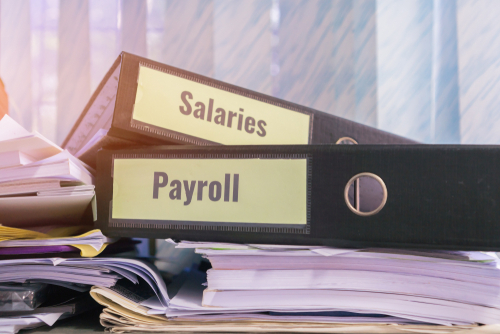
Employers can opt to deal with taxable benefits in kind through the payroll (known as ‘payrolling’) rather than reporting them to HMRC after the end of the tax year on the employee’s P11D. However, this is only possible if the employer is registered to payroll the benefits. This must be done before the start of the tax year for which the benefits are to be payrolled. It is not necessary to register the benefits every year – once registered for payrolling, benefits remain registered until deregistered. This too must be done before the start of the tax year for which the deregistration is to have effect.
Nature of payrolling
Where a benefit is payrolled, the taxable amount of that benefit is treated like extra salary paid to the employee in instalments with the employee’s regular salary or wage. For example, if an employee has a company car with a cash equivalent value of £4,800 and is paid monthly, the employee would be treated as if they had received extra pay of £400 each month. This is included in their gross pay for tax purposes. The tax is worked out on the total gross pay (including the payrolled benefits), and deducted from the employee’s cash pay.
As most taxable benefits are liable to Class 1A National Insurance rather than Class 1, the taxable amount of the payrolled benefit is not included in gross pay for National Insurance purposes. Instead, the employer must include payrolled benefits in the calculation of their Class 1A liability on form P11D(b), which must be submitted to HMRC by 6 July after the end of the tax year.
At present, all benefits can be payrolled with the exception of employment-related loans and living accommodation.
Registering new benefits
As the start of the 2024/25 tax year approaches, employers should review the benefits that they want to payroll in that tax year. If there are any benefits that are to be payrolled for the first time, the employer will need to register to payroll those benefits before the new tax year starts on 6 April 2024. This can be done online using HMRC’s payrolling employees’ taxable benefits online service (see www.gov.uk/guidance/paying-your-employees-expenses-and-benefits-through-your-payroll).
It is also prudent to review benefits already registered for payrolling to check that you still want to payroll those benefits in 2024/25. If not, the registration will need to be cancelled before 6 April 2024. This too can be done using HMRC’s payrolling employees’ taxable benefits online service.
Looking ahead
In their January 2024 simplification update, HMRC revealed that payrolling will become mandatory from April 2026. If you are still reporting expenses and benefits after the year end on the P11D, you may wish to consider moving to payrolling ahead of the 2026 mandation date. This will save the task of filing P11Ds too (although a P11D(b) will still be required).